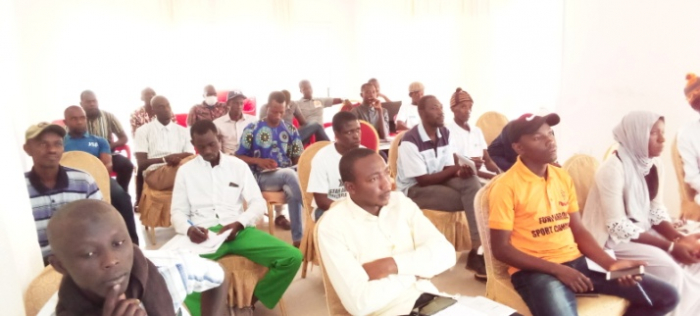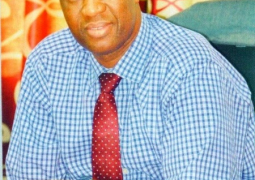
Organised by Gambia Association of Local Government Authorities (GALGA) in partnership with Rural Development Institute (RDI), the training is anchored on the irregular conduction of ward meetings and in some cases, the disorderly manner leading to poor performance of most ward committees. It is funded by UNDP-The Gambia under its economic empowerment project.
“Generating and maintaining development as a process remains a continuous challenge in an evolving community development environment,” Landing B. Sanneh, president of GALGA, who is also the chairman of Mansakonko Area Council, said at the start of the training on Tuesday.
He said Ward Development Committees (WDCs) are part of the tiers of local government administration and in fact, the second highest tier responsible for coordination of all development activities within the ward.
The training seeks to explore and leverage on both vertical and horizontal systems of community based development models. While both models have clear structures in common, the vertical model relates to authority and line management and the horizontal peer systems are found in neighborhoods, other informal networks, and relationships based on personal links, and rely on mutual interest, including building communities from the inside out.
Presenting on the overview of local government administration and decentralization in The Gambia, vice principal of Rural Development Institute, Ousman Sonko said decentralisation in The Gambia was conceived within the framework of the country’s local government decentralisation reform programme.
“In spite of the earlier enthusiasm for decentralization, the momentum waxed and waned due to domestic issues. To re-inject new vigor and dynamism into the process with the change of government in 1994, the issue of decentralization was placed high on the development agenda of the new government once again,” he said.
The training is taking structured sessions approach (presentations, lectures, class and group works, etc.) and on daily basis, participants will be led by a group of resource persons with daily evaluation and recap of all sessions.
“It is your responsibility to ensure that there is sufficient representation of the interest of the people in the meetings you call,” Bakary Fofana, a lecturer at RDI told the participants during a presentation.




